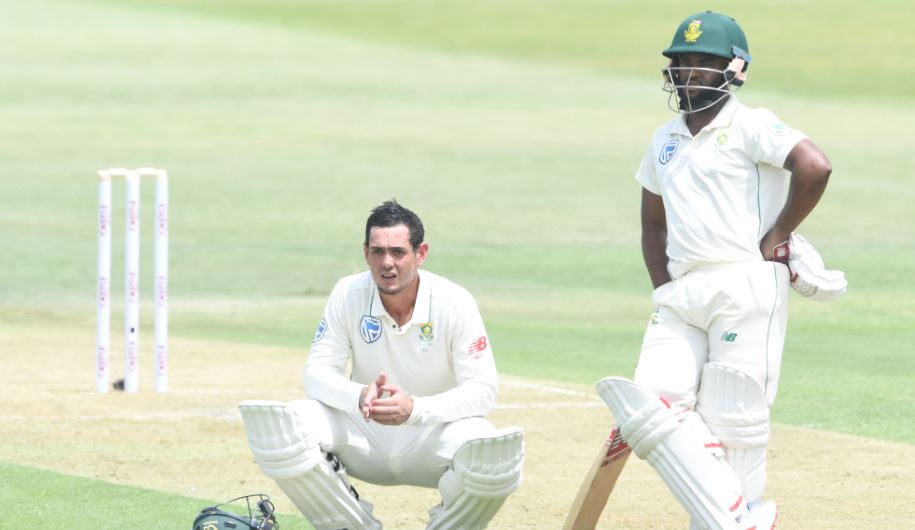The Proteas management remains intent on developing a wider group of players rather than merely a best XI, writes JON CARDINELLI.
Cricket, and indeed every other competitive sport, has been suspended indefinitely due to the Covid-19 crisis. With no live sport to cover, many publications and websites have taken the opportunity to reflect on classic games as well as the great XIs of yesteryear.
All the great teams possessed the mental determination to complement their sublime physical abilities. Another common denominator among these squads was the internal competition for places in the starting XI.
It’s hard to believe that players of the quality of Adam Gilchrist and Mike Hussey had to wait until they were 27 and 30 respectively to earn their first Test caps for Australia. Faf du Plessis was 28 when he eventually made his Test debut for the Proteas, and even then he had to serve as a No 6 batsman due to the traffic jam of world-class talent in the top and middle order.
READ: Smith removes ‘interim’ from DoC post
The South African Test side was at its peak when Du Plessis, JP Duminy, Jacques Rudolph and Dean Elgar were all pushing for a place in a batting lineup that already boasted Graeme Smith, Alviro Petersen, Hashim Amla, Jacques Kallis and AB de Villiers. While the Proteas relied heavily on Dale Steyn and Vernon Philander in that golden era, there were some fine seam-bowling alternatives in Morné Morkel and Kyle Abbott.
The Proteas claimed big wins in England and Australia in 2012 and went on to retain the No 1 ranking for several years. They began to decline in 2014, though, as several of their big guns retired or opted to move on.
It remains to be seen whether De Villiers will return to the Proteas or whether Du Plessis will play another Test. That duo aside, Elgar is the only one of the aforementioned players who is part of the current setup.
The current side is not yet in a position to emulate those great Test teams of the past. It may be some time yet before the Proteas build some momentum and develop a squad with the ability to claim and retain the No 1 ranking.
And yet there are encouraging signs. While the Covid-19 crisis looks set to take a major financial toll on the sport and push back all sorts of series and tournaments like the T20 World Cup, the South Africans slowly appear to be laying the foundations for a brighter future.
WATCH: Graeme Smith’s full interview with SuperSport
CEO Jacques Faul has brought some stability to the CSA setup since his arrival. Coach Mark Boucher and director of cricket Graeme Smith appear intent on taking a holistic approach.
Speaking to SuperSport’s Pommie Mbangwa earlier this week, Smith was open and honest about the challenges the local game will face – during and after the crisis. And yet it was refreshing to hear that there is a plan and that the management will adjust as the Covid-19 situation unfolds.
Smith wants all of the best South African players to be available to the national side. While he is intent on strengthening the domestic game and stemming the stream of younger players heading abroad, he is mindful of the fact that star players can earn big bucks overseas. If they are committed to playing for the Proteas, though, perhaps those elite players can enjoy the best of both worlds.
Smith admitted that plans to train and develop a select group of players during the winter months have already been affected due to Covid-19. The series in Sri Lanka has been cancelled and the subsequent tour to the West Indies in July may also be scrapped.
When Boucher and Smith speak, one gets the impression that they are in it for the long haul. It’s great to see CSA securing Smith’s services until 2022. It may take longer than two years to build a team that boasts quality in depth, though.
ALSO READ: Boucher right to cast net wide
We’ll have to wait until this crisis is over to see Smith and Boucher put these plans into action. We’ll see a new captain at the helm and a new dynamic.
Boucher cast the net wide during the recent limited-overs series against England and Australia. The Proteas certainly got some answers from that exercise.
The Proteas may lose as many Tests as they win in the next season or so. It’s important that they keep their long-term goal in mind, though, and avoid the mistakes that were made by their predecessors over the past four or five years.







